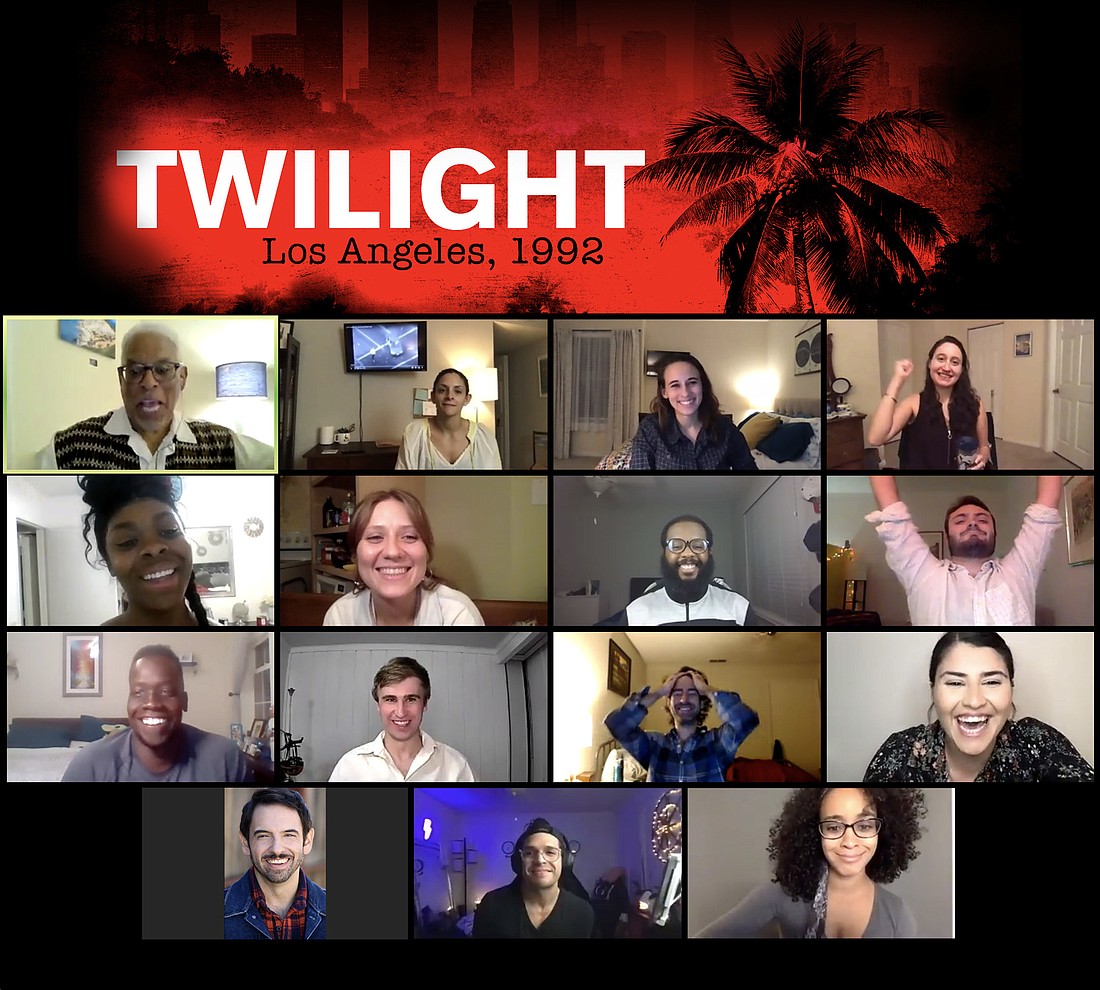- December 27, 2024
-
-
Loading

Loading

Theater holds a mirror up to life. But life isn’t fair—and life sometimes punches live theater in the face. Sometimes, the show doesn’t always go on. The pandemic was this year’s showstopper.
Theater troupes everywhere faced hard choices. The FSU/Asolo Acting Conservatory was no exception.
When the virus made its entrance, it had already announced its upcoming season. Diligent acting students were reading their scripts. In normal times, they’d be rehearsing now. But 2020 is anything but normal.
Live theater was an early casualty. On March 12, even Broadway went dark. A few days later, the Asolo Rep and Asolo Conservatory did, too.
Greg Leaming is the conservatory’s director. He needed a Plan B—and quickly. The stage was off-limits. Virtual theater was the only alternative. Which play?
Director Benny Ambush suggested a short list of relevant plays. Anna Deveare Smith’s “Twilight: Los Angeles, 1992” was at the top. Her play focused on the L.A. riots following the acquittal of the police officers in the Rodney King beating. The city burned for six days. Why? What were the underlying issues? To get the answers, the playwright recorded interviews with 300 Angelenos of all descriptions. Smith distilled that to 40 transcripts of real-life individuals. And performed each character in her virtuoso, one-woman show.
Leaming instantly saw the possibilities. The second-year student actors could play the roles. With that change, Smith’s play translated nicely to Zoom. But format wasn’t the deciding factor. History was.
As Mark Twain said, “History doesn’t repeat itself, but it often rhymes.”
In 2020, the repetitive litany was ugly. In the spring and long, hot summer, the nightly news was a weird echo of 1992. Different cops, different African-American victims, different riots. But the script was sickeningly familiar.
“‘Twilight’ really speaks to our strange days,” says Leaming. “I knew we had to do this play. I didn’t know how at first. I just knew we had to.”
After securing the rights to Smith’s masterpiece, Leaming knew the perfect director. Benny Ambush, of course.
The play’s tough-minded subject matter was right in his wheelhouse. But directing an ensemble of actors on stage is one thing. Assembling a mosaic of solo performance recordings in the editing room is another. Zoom was a different animal for Ambush. It was for the actors, too.
Thanks to Zoom, the world really was a stage. They rehearsed in scattered meetings on computers in apartments, offices and picnic tables. Ambush directed them one-at-time. He repeated the process for their final performances.
What was that like for the student actors?
Ptah Garvin and Dayna Palya shared similar experiences. Zoom was fun, frustrating, challenging—all of the above. It might be the future of theater. It might vanish with a vaccine. Who knows? Who cares?
Zoom is just a means to an end.
The play’s the thing. Period.
“It doesn’t feel like we’re doing a play about recent history. It’s more like history itself gave us the assignment.”
— Ptah Garvin, Asolo Conservatory actor
Both actors care deeply for their characters. Playing Hamlet is one thing. But the people they play are real. Most are still alive.
“I feel incredibly responsible for my characters,” Garvin says. “The words I speak are the actual words they said. It’s their perspective, not mine. I try to honor that.”
Zoom offers great teaching moments. Student actors (and two conservatory alums) get to stretch their muscles, and try out different accents and attitudes.
“If we were doing a different play, this Zoom thing might feel like a weird, grad school experience,” Playa says. “But ‘Twilight’ is so weighted and so timely. I take it very seriously.”
Garvin does, too.
“It doesn’t feel like we’re doing a play about recent history. It’s more like history itself gave us the assignment.”
Ambush says there is no big history lesson. And that’s the lesson.
“The L.A. riots was such a huge historical moment,” he says. “It’s hard to wrap your mind around it. What’s the big picture? The truth is there is no big picture. History isn’t made up of big moments. It’s a lot of small moments that were big to the people who went through it.”
As Ambush sees it, the truth is a mosaic of individual experience. Conveying that truth is his directorial goal. And the playwright’s goal as well.
“Anna had no preconceptions about the L.A. riots. She didn’t start with the big story. She got the story directly from the people. She pieced all their little stories together, one interview at a time.”
Individuality also informs the director.
“I made a decision on day one,” Ambush says. “Actor and character will always share the same origin. If you’re Black, so is your character. Or Chicano, or Caucasian … and so on. Each actor always stays true to their unique identity. That’s the heartbeat of this play after all.”
This article has been updated to correct the spelling of Dayna Palya's name.